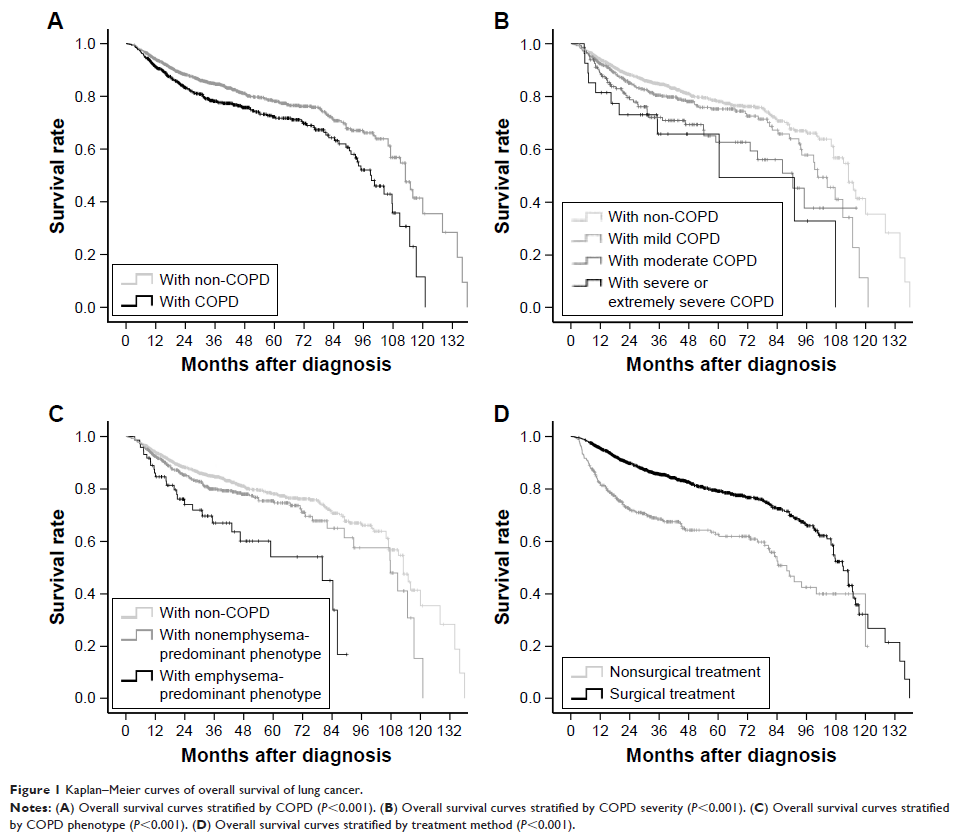9 1 2 3 6
论文已发表
注册即可获取德孚的最新动态
IF 收录期刊
- 2.6 Breast Cancer (Dove Med Press)
- 3.9 Clin Epidemiol
- 3.3 Cancer Manag Res
- 3.9 Infect Drug Resist
- 3.6 Clin Interv Aging
- 4.8 Drug Des Dev Ther
- 2.8 Int J Chronic Obstr
- 8.0 Int J Nanomed
- 2.3 Int J Women's Health
- 3.2 Neuropsych Dis Treat
- 4.0 OncoTargets Ther
- 2.2 Patient Prefer Adher
- 2.8 Ther Clin Risk Manag
- 2.7 J Pain Res
- 3.3 Diabet Metab Synd Ob
- 4.3 Psychol Res Behav Ma
- 3.4 Nat Sci Sleep
- 1.9 Pharmgenomics Pers Med
- 3.5 Risk Manag Healthc Policy
- 4.5 J Inflamm Res
- 2.3 Int J Gen Med
- 4.1 J Hepatocell Carcinoma
- 3.2 J Asthma Allergy
- 2.3 Clin Cosmet Investig Dermatol
- 3.3 J Multidiscip Healthc

COPD 对肺癌预后的影响:从疾病异质性的角度来看
Authors Wang W, Dou S, Dong W, Xie M, Cui L, Zheng C, Xiao W
Received 13 March 2018
Accepted for publication 13 August 2018
Published 20 November 2018 Volume 2018:13 Pages 3767—3776
DOI https://doi.org/10.2147/COPD.S168048
Checked for plagiarism Yes
Review by Single-blind
Peer reviewers approved by Dr Colin Mak
Peer reviewer comments 2
Editor who approved publication: Professor Chunxue Bai
Background: COPD is an
important comorbidity of lung cancer, but the impact of COPD on the outcomes of
lung cancer remains uncertain. Because both COPD and lung cancer are
heterogeneous diseases, we evaluated the link between COPD phenotypes and the
prognosis of different histological subtypes of lung cancer.
Methods: In this
retrospective study, subjects with a newly and pathologically confirmed
diagnosis of lung cancer were enrolled from patients preparing for lung cancer
surgery. All participants underwent pulmonary function test (PFT). The
diagnosis of COPD was based on GOLD criteria. Lung cancer subtypes and COPD
phenotypes were categorized by WHO classification of lung tumors and computer
quantitative analysis of PFT. The HRs were estimated by Cox regression
analysis.
Results: Among
2,222 lung cancer patients, 32.6% coexisted with COPD. After adjustment for
age, sex, body mass index (BMI), smoking status, and therapy method, COPD was
significantly associated with the decreased overall survival (OS) of lung
cancer (HR 1.28, 95% CI 1.05–1.57). With the increased severity of COPD, the OS
of lung cancer was gradually worsened (HR 1.23, 95% CI 1.08–1.39). But surgical
treatment and high BMI were independent prognostic protective factors (HR 0.46,
95% CI 0.37–0.56; HR 0.96, 95% CI 0.94–0.99). Moreover, in terms of disease
heterogeneity, emphysema-predominant phenotype of COPD was an independent
prognostic risk factor for squamous carcinoma (HR 2.53, 95% CI 1.49–4.30). No
significant relationship between COPD phenotype and lung cancer prognosis was
observed among adenocarcinoma, small cell lung cancer, large cell lung cancer,
and other subtype patients.
Conclusion: These
findings suggest that COPD, especially emphysema-predominant phenotype, is an
independent prognostic risk factor for squamous carcinoma only.
Keywords: lung
cancer, COPD, prognosis, histology, disease heterogeneity
